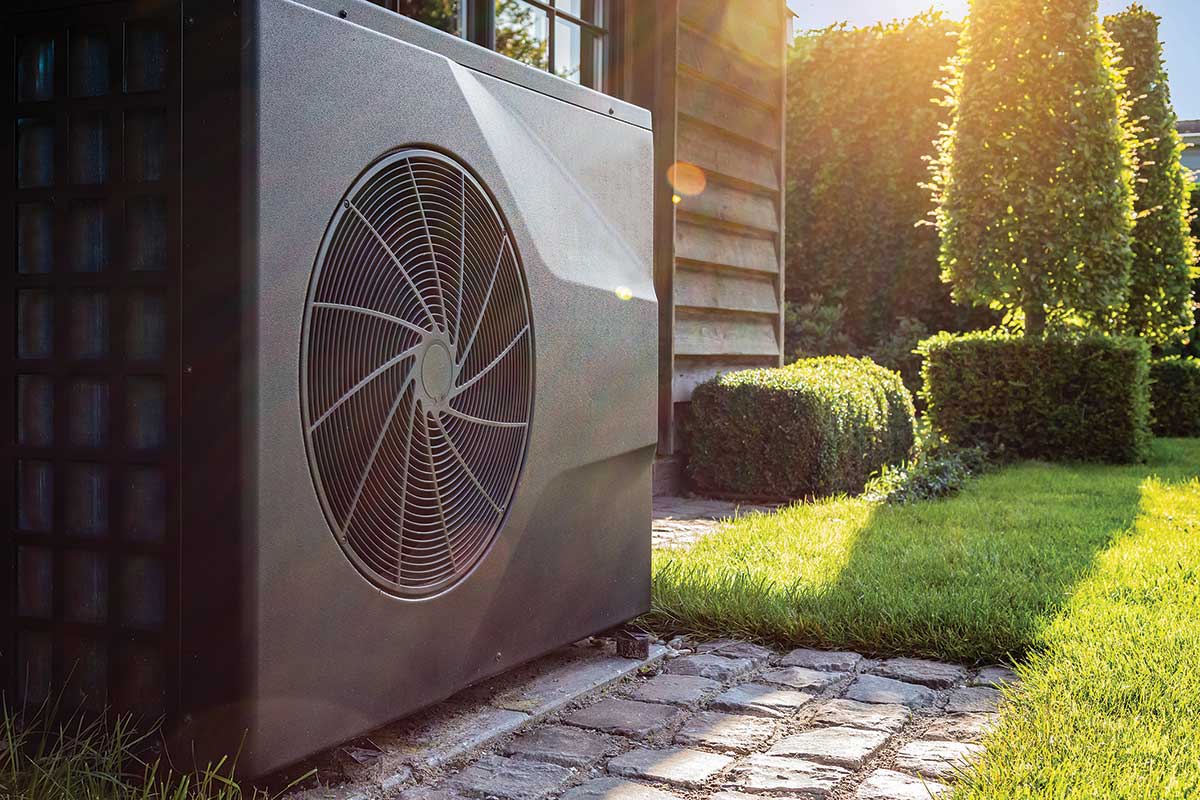Amid the energy crisis of the 1970s, heat pumps were all the rage. The devices use electricity to efficiently transfer heat from a cool space to a warm space, making the cool space cooler and the warm space warmer. Because they transfer heat rather than generate it, heat pumps can efficiently create comfortable temperatures for a home.
They were largely cast aside after the energy crisis, but now they’re coming back and even more efficient than they were 50 years ago. Some 40% of new homes in the U.S. are built with heat pumps, according to Fortune.
With heating and cooling costs making up most of the average home’s electricity bill, maybe it’s time you considered the mighty heat pump for your home. There are three main types, as described by the Department of Energy and Consumer Reports.
Ductless Air-Source Heat Pumps
For homes without ducts, air-source heat pumps are also available in a ductless version called a mini-split heat pump. In addition, a special type of air-source heat pump called a reverse cycle chiller generates hot and cold water rather than air, allowing it to be used with radiant floor heating systems in heating mode.
- These systems are easier to install, quiet and small in size.
- They’re flexible for heating and cooling individual rooms and smaller spaces.
- There’s no energy loss through ductwork, which accounts for more than 30% of a home’s energy use for heating and cooling.
- Installation can be pricey, but federal incentives may be available.
Ducted Air-Source Heat Pumps
The most common type of heat pump is the air-source heat pump, which transfers heat between your house and the outside air. Modern heat pumps can reduce your electricity use for heating by about 50% compared to electric resistance heating such as furnaces and baseboard heaters.
- These systems move heat rather than converting it from a fuel like combustion heating systems do.
- Newer, more efficient systems now represent a legitimate space heating alternative in colder regions like the Northeast and Midwest.
Geothermal Heat Pumps
Geothermal (ground-source or water-source) heat pumps achieve higher efficiencies by transferring heat between your house and the ground or a nearby water source. They can reduce energy use, control humidity, are sturdy and reliable, and fit in a wide variety of homes.
- These systems tend to be more expensive to install but provide more energy savings for heating and cooling.
- They move heat through pipes buried underground.
- Compared to a conventional heating system, geothermal heat pumps can reduce energy use by 25%–50%.
- They’re effective in extreme climates but not ideal for smaller lots and certain soil conditions.


